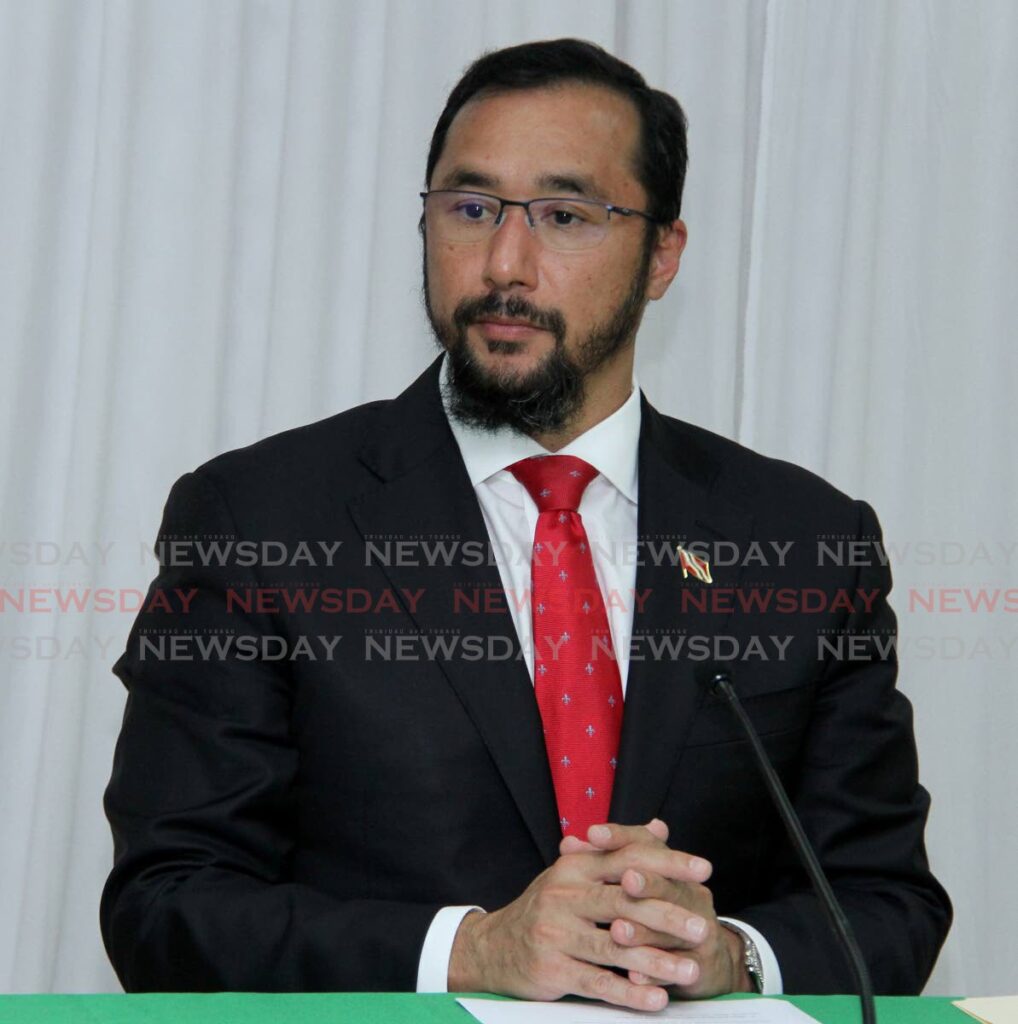Young: There must be consequences for crime

MINISTER in the Office of the Prime Minister Stuart Young said unless there are consequences to people committing crimes, including corruption, crime cannot be curbed in any significant way.
He made this argument during his contribution to debate on a private motion in the House of Representatives on Friday.
In making this argument, Young expressed concern about people accused of murder now having the possibility of being granted bail.
He rejected Opposition Leader Kamla Persad-Bissessar's earlier contribution about not blaming the UNC for crime in TT.
Simultaneously, Young supported National Security Minister Fitzgerald Hinds' argument that the Opposition hindered the Government's efforts to deal with crime and there was a perception that the UNC interacted with criminal elements while in government between May 2010 and September 2015.
Young, national security minister from August 6, 2018 to April 18, 2021, said Government tried to improve the criminal justice system in several ways. Drafting legislation to abolish preliminary inquiries was one of them.
He said there were some people who tried to prevent this "to earn fees and to frustrate the system."
As a MP and a citizen, Young continued, he was concerned about a recent decision that went all the way to the Court of Appeal, making it possible for people on murder charges to apply for bail.
"How could you ask the Government, police service, law-abiding citizens, civic-minded citizens to easily accept that now persons who are charged with murder could legitimately apply for bail? He reminded MPs that previously under the Bail Act, bail was not allowed for capital offences such as murder.
"That has changed now. That is the criminal justice system."
Before coming to Parliament, Young said he read an article about a murder accused getting bail.
"This bothers me as an elected Member of Parliament, an attorney who has practised in the courts for almost two decades before getting into politics and as a citizen of TT."
Under the doctrine of the Separation of Powers, Young said the Executive, Legislature and Judiciary have to be pulling in the same direction to effectively deal with crime.
"We as legislators can pass legislation here, which we think is going to improve the criminal justice system, fight crime and criminality. Pass it with a special majority. The concept of Separation of Powers is breached because there are others who think you all (legislators) have no say in that."
Young argued that the Government, who is best placed in developing policy to deal crime, owing to having access to intelligence from the police and other arms of national security.
"This is a live example of us taking decisions, passing legislation to fight crime and then it being derailed to an extent."
Saying no consequences for wrongdoers has no limits in TT, Young claimed an MP who was absent for the sitting, was reported as saying there was no wrongdoing when he was a government minister.
He reiterated claims that $400 million was siphoned out of a state enterprise under that person's tenure.
To Persad-Bissessar's statement that the UNC was not involved with any criminal elements, Young recalled giving evidence to a parliamentary joint select committee as national security minister in 2019, about MPs leaving the Parliament (while it was at the Port of Spain Waterfront International Centre) to go to a hotel "to pay the drinks bill for gangs and gang members.
He claimed opposition MPs from one part of Trinidad were asking gang members from other parts Trinidad to come to their constituency office.
"So don't come here and tell the country that you don't know about funding criminal elements."
Young expressed concern about legislators who could be interacting with suspected criminal elements in this manner.
"You are part of the problem."


Comments
"Young: There must be consequences for crime"